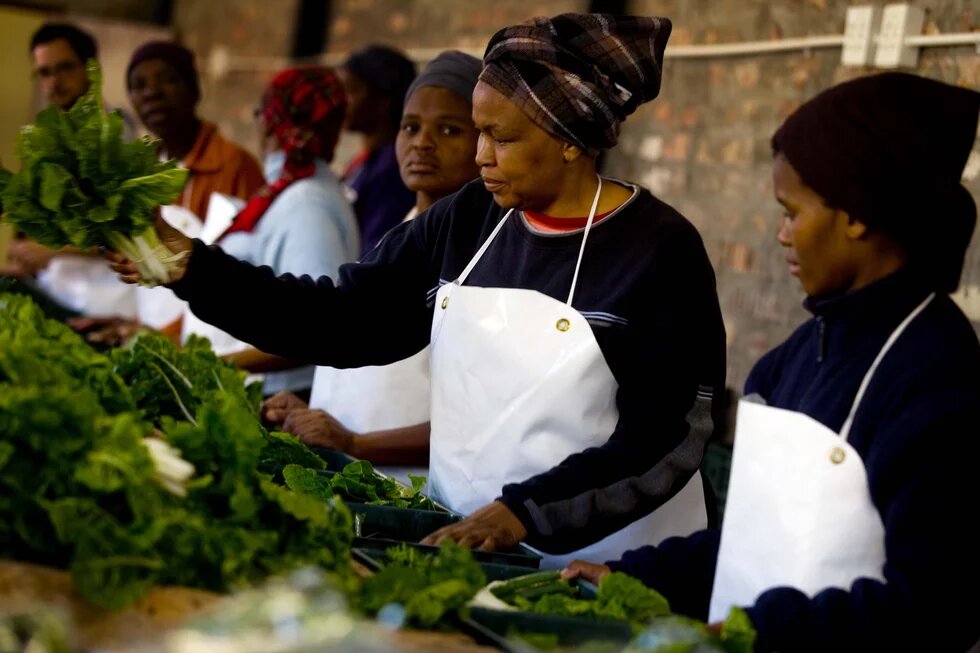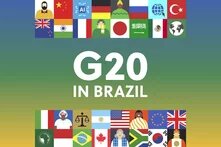The G20 has long vowed to confront the global hunger crisis, but has struggled to translate its pledges into tangible results. South Africa’s presidency represents an opportunity to rally international support for proven solutions that strengthen local food systems and promote sustainable livelihoods.

Austin/Johannesburg – Upon assuming the G20 presidency in December, South Africa chose "solidarity, equality, and sustainability” as its theme. Far from being an empty slogan, this vision reflects the principles on which any credible international response to today’s hunger crisis must rest.
Driven by climate change, conflict, and inequality, food insecurity is spiking around the world. The tools to address it already exist. The challenge is to mobilize the political will to act. South Africa’s G20 presidency presents a unique opportunity to do just that.
Reinforcing Proven Solutions Instead of Launching New Initiatives
Brazil offers a valuable model. Over the past two years, it managed to lift 40 million people out of food insecurity, removing itself from the United Nations’ hunger map. To achieve this, President Luiz Inácio Lula da Silva’s administration reinstated policies scrapped by his predecessor, Jair Bolsonaro, bolstered school meal programs through procurement from smallholder and indigenous farmers, raised minimum wages, and legally recognized the right to food.
None of these measures is experimental. They are tried, tested, and proven solutions, and their success shows that eliminating hunger does not hinge on technological innovation but on political courage.
Eliminating hunger does not hinge on technological innovation but on political courage.
When Brazil held the G20 presidency last year, it sought to export its domestic achievements, most notably by launching the Global Alliance Against Hunger and Poverty. Yet tangible results remain elusive, as many of the Alliance’s members – particularly multilateral development banks (MDBs) – continue to promote technical, market-driven fixes that place corporations’ property rights above people’s basic needs.
Instead of launching new initiatives and platforms, the G20’s top priority should be to consolidate and scale up programs that have already proven effective. The Civil Society Mechanism of the UN Committee on World Food Security provides a robust, inclusive space for global debate. What is needed now is a concrete political agenda that enables progressive leaders and public officials to advance domestic anti-hunger policies.
How South Africa Should Use Its Political Leverage
Admittedly, South Africa does not have much time before handing the G20 presidency to the United States – the only member state that has consistently refused to recognize the human right to food. But in the time that remains, it can still champion critical anti-hunger policy tools.
Four such tools stand out. First, public procurement from local family farms for school meals and food programs strengthens both nutrition and rural livelihoods. Second, buffer stocks and price-stabilization mechanisms can protect consumers from price spikes while safeguarding farmers’ incomes. Third, social protection policies – ranging from living wages and cash transfers to universal benefits – ensure that households can afford healthy diets. Lastly, laws enshrining the right to food could help hold governments accountable if they fail to act.
G20 leaders must recognize that they do not need to defer to MDBs’ policy priorities.
Equally important, G20 leaders must recognize that they do not need to defer to MDBs’ policy priorities. Through their seats on the boards of these institutions, they already have the power to shift international support away from export-oriented agribusiness toward local food systems and climate-resilient family farming.
If the South African government is serious about promoting a fairer, more sustainable global food system, it should follow the lead of its civil society, which has long been at the forefront of the fight against hunger. Rather than convening yet another round of high-level discussions with little follow-through, it must work to secure public commitments that outlast America’s G20 presidency.
Local Initiatives Strengthen Food Sovereignty
South African policymakers appear to understand the stakes. At the recent UN Food Systems Summit Stocktake (UNFSS+4) in Addis Ababa, Agriculture Minister John Steenhuisen reaffirmed the country’s commitment to food sovereignty. For the first time, the proposed National Food and Nutrition Plan recognizes agroecology as a pathway to sustainable agriculture, biodiversity, and climate resilience. The Agricultural Research Council has also been tasked with developing a national agroecology framework centered on indigenous crops.
While the wheels of governance often turn slowly, grassroots communities cannot afford to wait. During the COVID-19 pandemic, researchers encountered a vibrant network of 78 smallholder producers, most of them women, who cultivated a wide variety of fruits and vegetables in the KwaZulu-Natal province. By selling their surplus locally, these farmers sustained businesses across the Umgungundlovu District, from bakkie traders and informal market stalls to spaza shops, schools, and municipal markets.
Hunger is not defeated in conference halls; the fight is in kitchens, schools, and fields.
This experience demonstrates how localized food systems sustain both livelihoods and communities. Hunger is not defeated in conference halls; the fight is in kitchens, schools, and fields. To win, grassroots producers need political backing and the resources to thrive.
The G20 must tackle the hunger crisis head-on or risk forfeiting what remains of its credibility. South Africa can lead the way by putting food justice at the top of its agenda, demonstrating that “solidarity, equality, and sustainability” are not abstract ideals but essential for humanity’s survival.
This article was first published on the Project Syndicate website.

